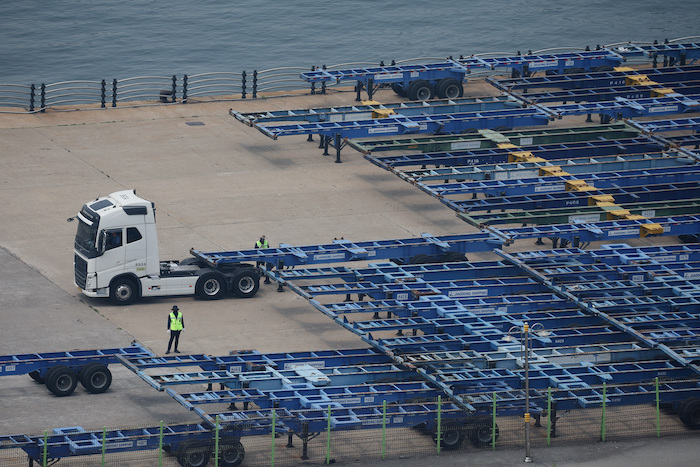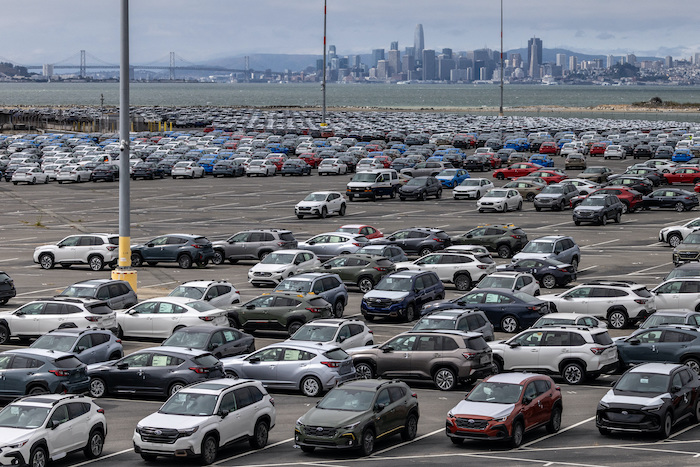Leaders of Japan and South Korea are desperate to get the United States to reduce its proposed tariffs, which currently stand at 25% for the two most dynamic economies in North Asia.
The trade onslaught launched by the Trump Administration has caught the two countries, both longtime allies of the US, at a time when national leaders were – and continue to be – preoccupied with domestic electoral challenges. South Korea held a national election on June 3 and Japan faces an Upper House ballot on July 20.
But both Tokyo and Seoul said on Tuesday they would try to negotiate with the US to soften the impact of sharply higher tariffs that President Donald Trump plans to impose from the start of August.
ALSO SEE: China Says BRICS ‘Not Seeking a Clash,’ After Trump Tariff Threat
Trump ramped up his trade war again on Monday, telling 14 nations that they would face tariffs ranging from 25% for countries including Japan and South Korea, to 40% for Laos and Myanmar.
However, with the start date pushed back to August 1, those countries were focusing on the new three-week window to press for an easier ride.
Japanese PM Shigeru Ishiba told a cabinet meeting on Monday that the announcement of 25% tariffs was “genuinely regrettable,” according to local media.
Japan wants concessions for its large automobile industry, top trade negotiator Ryosei Akazawa said on Tuesday.
Akazawa said he held a 40-minute phone call with US Commerce Secretary Howard Lutnick in which the two agreed to actively continue negotiations. However, he said he would not sacrifice Japan’s agriculture sector – a powerful political lobby domestically – for the sake of an early deal.
South Korea said it planned to intensify trade talks over the coming weeks “to reach a mutually beneficial result.”
Asked if the latest deadline was firm, Trump replied on Monday: “I would say firm but not 100% firm. If they call up and they say we’d like to do something a different way, we’re going to be open to that.”
Market reaction was muted as investors assessed the latest twist in the long-running trade saga.

Trade uncertainty dragging on
The European Union, which is the largest bilateral trade partner of the US, aims to strike a deal before August 1 with negotiations focused on “rebalancing” and concessions for certain key export industries, a European source familiar with the negotiations said.
Some EU sources had said late on Monday that the bloc was close to an agreement with the Trump administration.
This could involve limited concessions to US baseline tariffs of 10% for aircraft and parts, some medical equipment and spirits.
Only two deals have been struck so far, with Britain and Vietnam. Washington and Beijing agreed to a trade framework in June, but with many details still unclear, traders and investors are watching to see if it unravels or leads to a lasting detente.
Trump’s trade tactics are making it hard for nations and businesses to plan with any certainty, the executive director of the United Nations trade agency said on Tuesday.
“This move actually extends the period of uncertainty, undermining long-term investment and business contracts, and creating further uncertainty and instability,” Pamela Coke-Hamilton, executive director of the International Trade Centre, told reporters in Geneva.
Pain spread across Asia
Trump said the United States would impose tariffs of 25% on goods from Tunisia, Malaysia and Kazakhstan, with levies of 30% on South Africa, Bosnia and Herzegovina, climbing to 32% on Indonesia, 35% on Serbia and Bangladesh, 36% on Cambodia and Thailand and 40% on Laos and Myanmar.
A Bangladesh team in Washington was scheduled to have further trade talks on Wednesday, an official said.
The US is the main export market for Bangladesh’s ready-made garments industry, which accounts for more than 80% of its export earnings and employs 4 million people.
“This is absolutely shocking news for us,” Mahmud Hasan Khan, president of Bangladesh Garment Manufacturers and Exporters Association, told Reuters on Tuesday.
“We were really hoping the tariffs would be somewhere between 10-20%. This will hurt our industry badly.”
- Reuters with additional input and editing by Jim Pollard
ALSO SEE:
China Fears Negative Impacts of US Trade Pact With Vietnam
Indonesia to Sign $34 Billion Pact With US Ahead of Tariff Deadline
Japan’s PM Defends National Interest as Trump Ramps up Threats
China Fears Negative Impacts of US Trade Pact With Vietnam
Countries Should Not Sign Trade Deals at Our Expense: China
Carmakers Stressed by China’s Curbs on Critical Mineral Exports
Japan Says It’s In No Rush For A Trade Deal With The US
Japan Tells US: No Trade Deal Unless Auto Tariffs Reviewed
Japan May do Pipeline, Energy Deals to Appease Trump
























